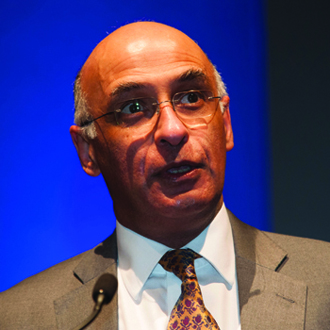Would GPs be better off outside the NHS?


YES. Charging would allow our profession to flourish
The current GP crisis has a simple root cause: basic services are underfunded. The rises in global sum and QOF payments since 2005 have been minimal and far less than inflation; at the same time, demand for appointments has doubled. There isn’t enough money to pay for additional staff, and existing staff work far harder for a lower income. No wonder nobody wants to be a GP.
How do we fix this? It needs investment, but whenever the Government offers new money, it demands more work – such as longer opening hours and new services. Basic services will never receive the funding boost they need. The public might say it is prepared to pay more taxes for better healthcare, but rarely votes for this – or expects the taxes to fall on someone else.
The NHS is a monopoly customer and this brings responsibilities. There are no ‘market forces’ to exert pressure, so the customer (the NHS) has to behave in the long-term best interests of the provider (GP practices) to ensure the provider survives and prospers. But successive governments have shown they prefer politically focused targets to the long-term wellbeing of the NHS in general, and of GPs in particular. It’s time to consider alternatives.
A starting point must be the abolition of the rule that GPs cannot charge their own patients for non-NHS services. Hospital doctors can see the same patients privately or on the NHS – are GPs uniquely untrustworthy? If the state isn’t prepared to pay for a particular GP service, or won’t pay a sensible amount, we should be able to come to a private arrangement with our patients.
Universal access to healthcare is the Governent’s responsibility, not ours
The result would be that patients and politicians would have to start putting a sensible value on GP time.
What about those who cannot afford private services? Going further and allowing GPs to charge patients for all services, as dentists do, including NHS services that we currently provide at a loss, would force the Government to cover the costs of care for those who can’t afford to pay, either by reimbursing them or increasing NHS funding.
And if private provision grows, it will reduce demand on the NHS allowing existing funds to go further. Universal access to healthcare is the Government’s responsibility, not ours, and it has to be prepared to pay a sensible rate for it.
Dr Prit Buttar is a locum GP in Scotland and former full-time partner in England

NO. Going private would not solve the crisis in general practice
The idea that GPs should leave the NHS to go private, charge patients or offer a two-tier service is contrary to the founding principle of the NHS – to provide a universal, health service free at the point of need.
The NHS was founded to provide equitable healthcare irrespective of income or status. Privatisation and charging is not only iniquitous, but also fragments services and escalates costs.
A charging mechanism was introduced for GP appointments in Germany, but was scrapped as the infrastructure for administering it proved so expensive and onerous. The GP co-payment scheme was forecast to bring in €2bn revenue each year for Germany, yet the admin cost €360m: practices spent an average 120 extra hours a year on it.1
Charging and insurance models also introduce perverse incentives to overinvestigate, overdiagnose and overtreat. This is damaging for GPs who want to pursue evidence-based practice, and the fear of litigation also leads to more defensive practice.
The only way forward is to build a truly public NHS for the 21st century
GPs already have the flexibility of independent contractor status, which gives the more entrepreneurial partners the freedom they cherish. Indeed, it can be argued that this was a compromise built into the original model.
My fear is we are already on a path that will ultimately take GPs out of the NHS. The Government’s plans for US- style ‘accountable care organisations’, involving 10- to 15-year health and social care contracts worth billions of pounds, will provide the right conditions for takeovers by large private healthcare and insurance corporations.
The drive towards federated networks of GP surgeries also paves the way for buyouts from private equity, hedge funds and corporations. The dire provision of social care in the UK provides a salutary warning of the deterioration in quality under private equity.
The only way forward is to build a truly public NHS for the 21st century. This means repealing the Health and Social Care Act 2012, reversing outsourcing and removing the companies that are profiteering from Private Finance Initiative projects, in order to resolve the toxic, odious debt of over £300bn for the UK. The NHS Reinstatement Bill (nhsbillnow.org) would provide a framework for this.
Dr Youssef El-Gingihy is a GP in Tower Hamlets, east London. A new edition of his book How to dismantle the NHS in 10 easy steps is out this summer, published by Zero books
Reference
1 Dawson J. Healthcare: another thing that the Germans just do better. New Statesman; June 2013.
Pulse October survey
Take our July 2025 survey to potentially win £1.000 worth of tokens










